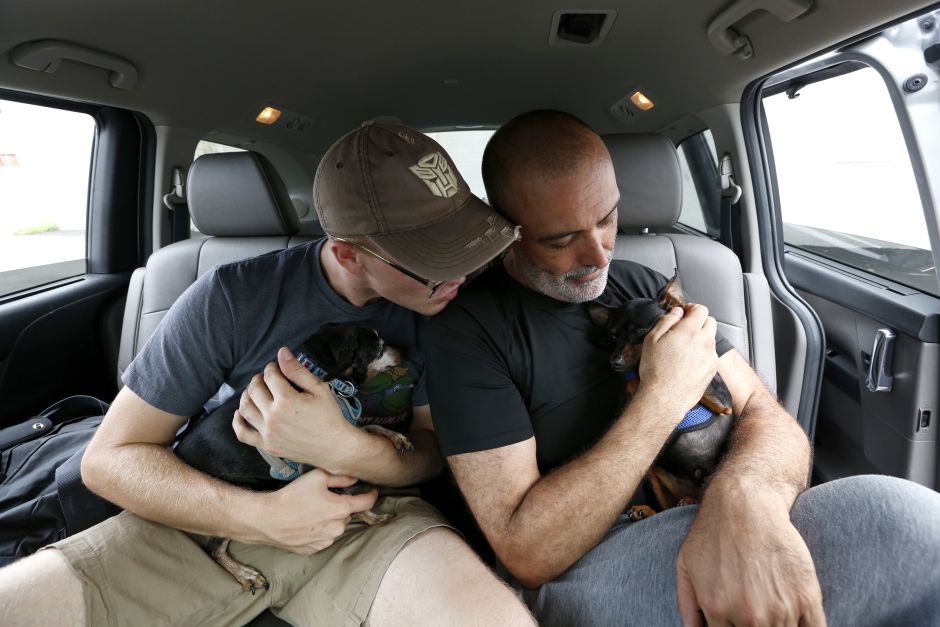At least 15 parking lots are provided by faith organizations, the city and the county of Los Angeles so that people in your vehicle can spend the night.
Angel Luis Acosta had done everything his parents told him that he needed to achieve the American dream: he went to college, did four masters and got a very well paid job that allowed him to rent a large apartment in western Los Angeles. For what he never prepared, it is to run out of a home at 50 years of age.
Ángel Luis and his partner Daniel Acosta have been sleeping in their car for almost five months.
The organization Safe Parking LA , whose mission is to ensure that homeless people living in their cars have a parking lot where they can spend the night safely, estimates that in Los Angeles County, there are 15,700 people who spend the night in their vehicles.
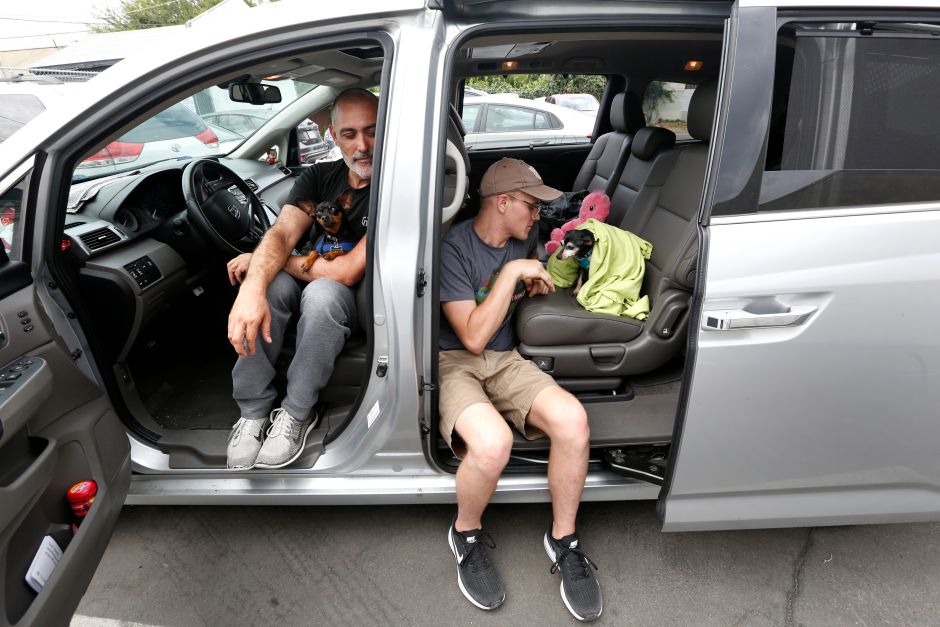
At the beginning of April, Ángel Luis lost the apartment in which he lived for 20 years; and since then, he and his partner Daniel sleep in their vehicle that they park every night in a place provided by the IKAR community organization and synagogue in collaboration with the Safe Parking program.
Misfortune appeared in his life when in 2016, Ángel Luis, the main provider of his home, lost his job. “I was an information director for a law firm. When I was fired I had enough money saved to keep us until April of this year. But the savings and unemployment are over, without finding an occupation, ”he says.
He did everything in his power to support his home, but could no longer with the monthly income of $ 2,250.
“The landlord behaved very well. He let us be there without paying rent for six months until we could no longer postpone the inevitable. We sold what we could, we packed, we rented a warehouse to store what little we had left and we went out with our dogs, ”he adds.
Ángel Luis has struggled a lot to find a job. In many places, they tell you that you have a lot of experience or that you don't have enough.
So he and his partner began to make money as drivers of the Uber company, but when they could no longer pay for the renewal of the license plates and the registration of their car, they stopped offering the shared transport service. "Now we only deliver food at home," he says.
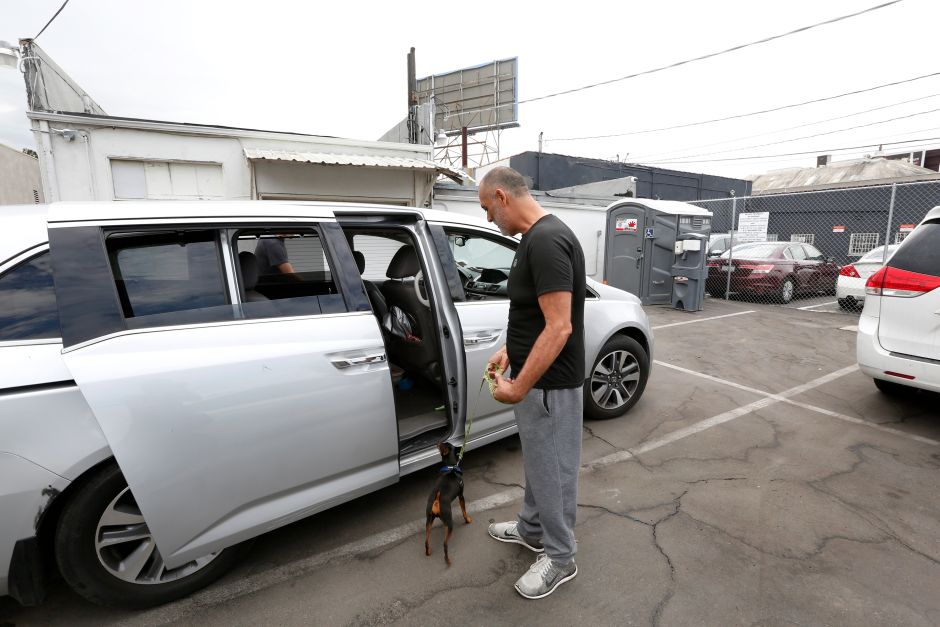
Ángel Luis Acosta and Daniel Acosta have a couple of puppies that live with them in their car. (Aurelia Ventura / La Opinion) The first days they slept in their vehicle in the same neighborhood where the apartment they rented for a long time was.
"The neighbors supported us a lot, but there was a time when we decided we had to move from there," he says.
Once on the street without a roof over his shoulders, the fight to survive began.
At first, they collected empty cans on the street to earn a few dollars. Daniel delivered food on his bicycle, but with such bad luck that it was stolen.
Luis Ángel was born in the city of Torrence in southern Los Angeles. He is the son of a Puerto Rican father and a Mexican mother. “Mommy and Dad have helped us as much as they can, but they are poor and they can't keep us,” he says.
Getting used to the street, after practically having it all, has not been easy.
“I earned $ 180,000 a year. I worked since four in the morning and traveled a lot. I can't say we had an extravagant life, but it was a good life, ”he says.
They have tried to seek help in different organizations and government entities. "Unfortunately, they give priority to those who just got out of jail or are drug addicts. If you are a person who has no mental health problems, you are not addicted or you just did not get out of prison, you have to wait two to five years", He says.
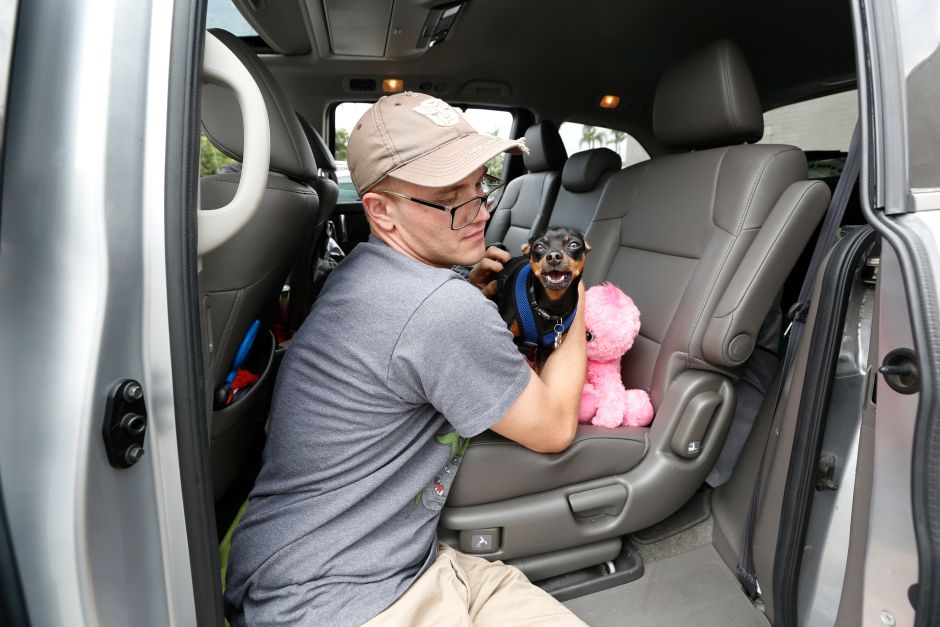
A safe place to sleep
In June, they found a parking lot in West Los Angeles where to park their car and sleep safely.
The parking lot of the IKAR community organization and synagogue offers Internet service. Once a week they serve them hot food. They also pay membership in a gym so they can go daily to take a shower.
They have a bathroom and portable sink. The Safe Parking program pays a watchman every night.
Ángel Luis and Daniel have found a supportive community among the homeless who come to sleep in their cars every night.
“We talked, we helped each other and we share the resources that we find while we look for a roof. There are homeless families that have children with special needs; and others who live even with grandparents in their vans, ”he talks.
Parking the car at night in a safe and allowed place provides some relief. “We have become a family. In the morning we say goodbye and in the evenings, when sometimes someone does not arrive, we worry, ”he acknowledges.
Because they don't have license plates or renewed registration for their car they only drive during the day. “Some police officers are friends, and when they have stopped us, we have explained the situation and asked us not to drive at night. We only drive until six in the afternoon. We do not want to expose ourselves. If they take away the troca, we are left without a roof and without a way to earn some money”, Explains Ángel Luis.
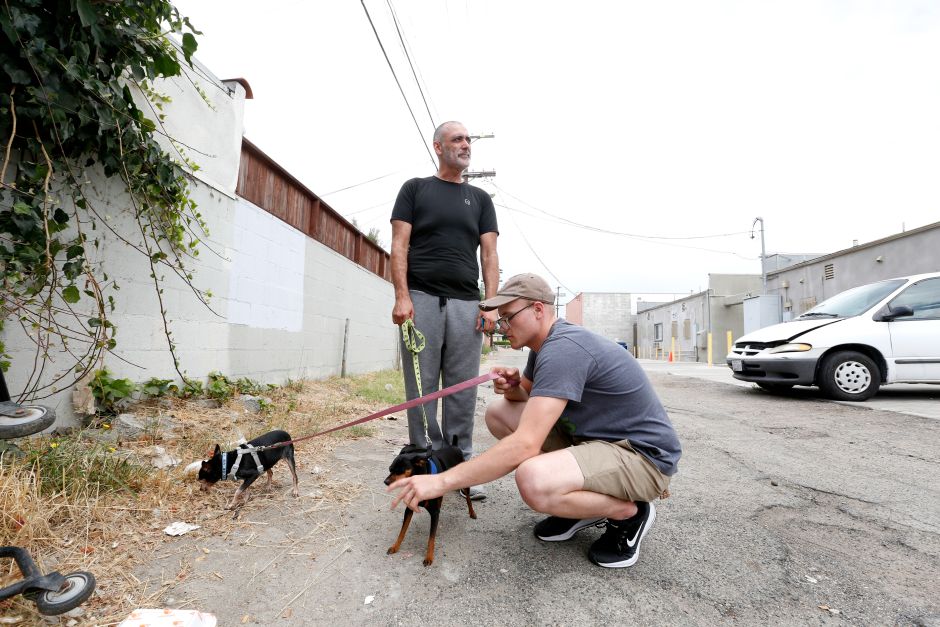
Since they use their car as a home, they only work for UBER delivering food at home. “What we earn helps us for gasoline and for eating,” he emphasizes.
Unfortunately, they don't see their future very promising. “We have looked for houses and rooms to rent, but everything is very expensive. The apartment where we lived with three bedrooms, patio and garage, had a "cheap" rent for $ 2,250 a month because I lived there for 20 years, but now that place, they rent it for $ 6,500, "he says.
He adds that in that area, a one-bedroom apartment costs $ 2,800 easily. "To move you need 10,000 dollars. Jobs do exist, but the wages they offer do not give to rent a place”, He observes.
He comments that "cheaper" rentals are usually of houses with walls that are falling, dirty and old folders; and insecure buildings.
Ángel Luis did everything his family told him he had to do to overcome himself. "Millet educate," said his mother. He did so, but when he seemed to have everything, he was left with nothing.
Every day he looks for work. However, he considers that his age also plays a factor against him to find an occupation. "I'm 50 years old. They don't tell you that you're old, but you realize when they don't call you or want to pay you less. They don't want to give me what I'm worth. I can't do it with $ 20,000 a year, ”he says.
Daniel and his partner are confident that they will leave homelessness. “Only we have to do it for ourselves. We have to save. No one is going to help us, ”says Daniel.
But living on the street has undermined his physical and mental health.
“He doesn't rest well in a car. Although one ends up adapting to this life, he misses hot foods and cooking. When it's hot it's much harder. You miss your bed, your stuff. But what we miss most is being calm. When you don't have a home, you always live worried”, Says Ángel Luis.
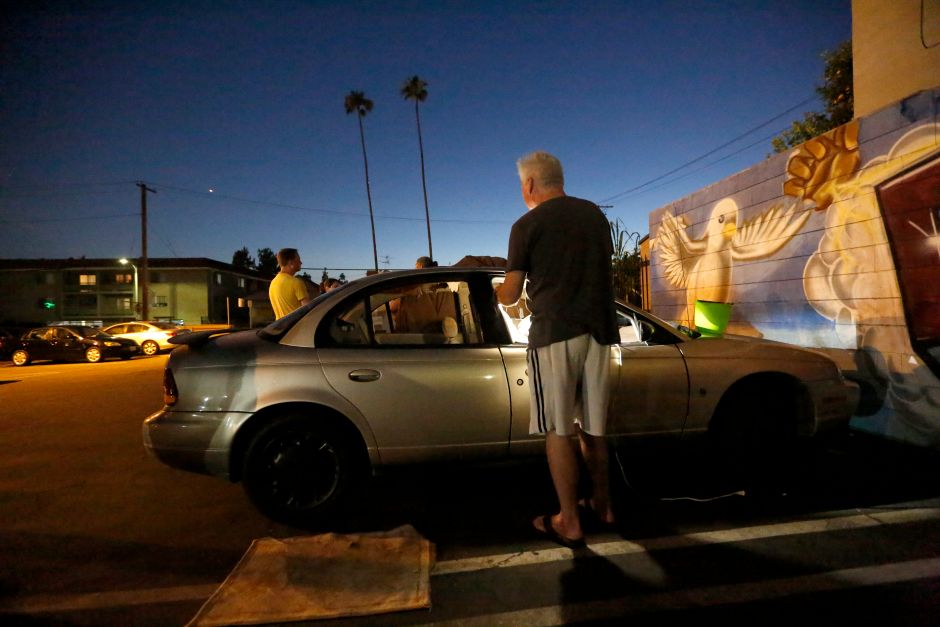
Secure parking
Brooke Wirtschafter, director of community programs at the IKAR community organization and synagogue, says that since 2018, they have offered a parking lot at night to homeless people living in their cars.
“This place belongs to the Jewish community and we work in partnership with the Safe Parking L.A. They provide a security guard, a portable toilet and investigate the criminal records of homeless people requesting parking, ”he says.
They even help them and pay them for the renewal of their registration, driver's license and auto insurance.
IKAR, in turn, gives passes to the homeless to go to the gym and can bathe.
The parking lot with capacity for ten cars, facilitated by the Jewish community works from 8:30 at night until 6:30 in the morning. "At that time, the security guard who takes care of the order in the parking lot works," he says.
Brooke explains that for the Jewish community, providing a space for homeless people who own a car to spend the night is part of living according to their values.
"One of the most important is to welcome strangers and care for the poorest. We need to share with people who don't have a house", He says.
At least twice a month, volunteers from the Jewish community offer a hot dinner to those who spend the night in the parking lot. They also carry board games to interact with them.
“It is an opportunity to know, build connections and understand the epidemic of helplessness. Sometimes people have a bad conception of who is a homeless person, and when they share their stories, they learn that they are like anyone else, they have stories and lives, ”he says.
For two years, the organization Safe Parking L.A., launched in the search for parking lots so that the homeless could park their cars at night, and prevent them from doing so in the streets of Los Angeles.
"We have 15 secure parking lots throughout the county. They are owned by faith organizations, the city and the county of Los Angeles. They use them by day and lend it at night to the homeless, ”says Jerry Kim of Safe Parking L.A.
"The main benefit we have achieved is that people can rest better at night and be more productive the next day," he explains.
And he points out that most of those who sleep in parking lots have a full-time, part-time job or are looking for work. Although there are people who suffer from some disability.
“By having a place to park their cars at night, it also allows them to be close to their jobs or their children's schools,” he explains.
On Friday, look for the third of five parts: Homelessness hits refugees and asylum seekers in Los Angeles
Part One: Latinos, the ethnic group with the most homeless in Los Angeles County

